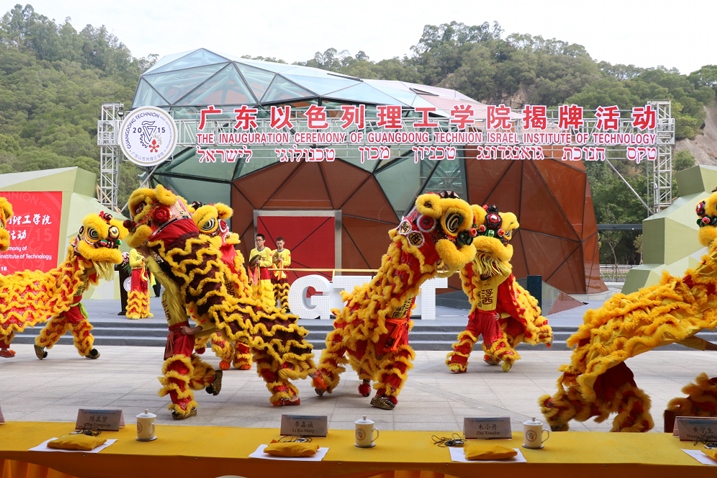Three scientists who received Technion’s Harvey Prize will be awarded a Nobel Prize in 2020
Technion Harvey Prize as a predictor of the Nobel.
In early October 2020, the Nobel Prize Committee announced the winners for this year’s prestigious international prize. Three of the new Nobel laureates were also awarded the Harvey Prize at Technion in recent years, thereby boosting the stature of the Harvey Prize as a “predictor of the Nobel.” Indeed, more than 30% of Harvey Prize winners since 1986 have gone on to win the Nobel Prize.
Born in Lithuania in 1887, Leo Harvey was the son of a small factory owner in the Vilna ghetto. Threatened with imprisonment because of his political activism, Harvey fled Czarist Russia in 1905, and arrived in Berlin, where he got a job as a toolmaker in a large company. Two years later Harvey immigrated to the US, attended the Cooper Union School, and found employment in 1910 with the Hot Point Electric Company in Ontario, California. While in California, Leo married Lena Brody in 1911 and the couple had three children. Possessed of unusual talent and ambition, Leo Harvey was destined to be his own boss. In 1914 he hired two men and set up shop in downtown Los Angeles. Thus began the Harvey Machine Company. By 1920 the company had more than 300 employees.
The Harvey Prize rewards excellence by recognizing breakthroughs in science and technology. The monetary Prize is a banner of recognition for men and women who have truly contributed to the progress of humanity. No less, however, the Prize is a source of inspiration. Serving as a stimulus, the award urges scientists and scholars forward to further accomplishment.
Leo M. Harvey (1887-1973) was a pioneer industrialist and inventor and an ardent friend and supporter of the State of Israel, particularly of the Technion – Israel Institute of Technology.
The Nobel Prize laureates in Chemistry for 2020 are Prof. Emmanuelle Charpentier, Director of the Max Planck Institute for Infection Biology in Berlin, and Prof. Jennifer Doudna of the University of California, Berkeley. Both women received the Harvey Prize less than a year ago, on November 3, 2019, together with Prof. Feng Zhang. In December, they will receive the Nobel Prize in Chemistry for developing “a tool for rewriting the code of life” and for CRISPR-Cas9, a revolutionary technology for genome editing.
Prof. Charpentier and Prof. Doudna published their historic article in 2012 in the journal Science. Here, they describe how the bacterial protein CRISPR-Cas9 can identify targets in the DNA and can easily be programmed to edit a broad range of DNA targets. These discoveries generated a revolution in life sciences and are expected to spark the development of a range of treatments for diseases.
At the Harvey Prize ceremony at Technion, Prof. Charpentier said: “It is a great honor for me to receive this prize, and I thank Technion for acknowledging the importance of our research.” Prof. Doudna added in a taped video clip (as she was unable to attend in person): “Today, CRISPR-Cas9 is used by scientists around the world to develop treatments for genetic diseases and to repair agricultural damage caused by global warming.”
During her visit to Technion, Prof. Charpentier also gave a lecture at the Technion Faculty of Biology. “Unfortunately, basic science does not receive the same attention as applied research,” she told the audience. “These days, scientists are under pressure to devote their time to applications, while basic science requires time and depth. Therefore, it is important for governments and foundations to also provide proper support for basic science.”
(l-r) Technion President Prof. Uri Sivan with Prof. Emmanuelle Charpentier; Prof. Jennifer Doudna; Prof. Reinhard Genzel.
Prof. Reinhard Genzel, who will receive the 2020 Nobel Prize in Physics this December, is a faculty member of the University of California, Berkeley, and is Director of the Max Planck Institute for Extraterrestrial Physics in Garching, Germany. Prof. Genzel received the Harvey Prize at Technion in 2014 along with Prof. James P. Allison, who won the Nobel Prize in Medicine two years ago. Prof. Genzel will share the Nobel Prize in Physics with Prof. Andrea Ghez of the University of California, Los Angeles for discovering “the darkest secret in the universe” – an enormous black hole in the center of our galaxy, the Milky Way.
The 2020 Nobel Prize in Physics is shared with Prof. Roger Penrose of the University of Oxford for breakthroughs in different fields of Physics, including the theory of relativity, the Big Bang theory and the creation of black holes. Prof. Penrose is also involved in the field of Geometry, where he has a connection with Distinguished Prof. Dan Shechtman of the Technion Department of Materials Science and Engineering who himself became a Nobel Laureate in Chemistry in 2011. The “Penrose tiles” that Prof. Penrose developed paved the way for the discovery of the quasiperiodic crystals – a whole new class of matter – for which Prof. Shechtman won the Nobel Prize.


